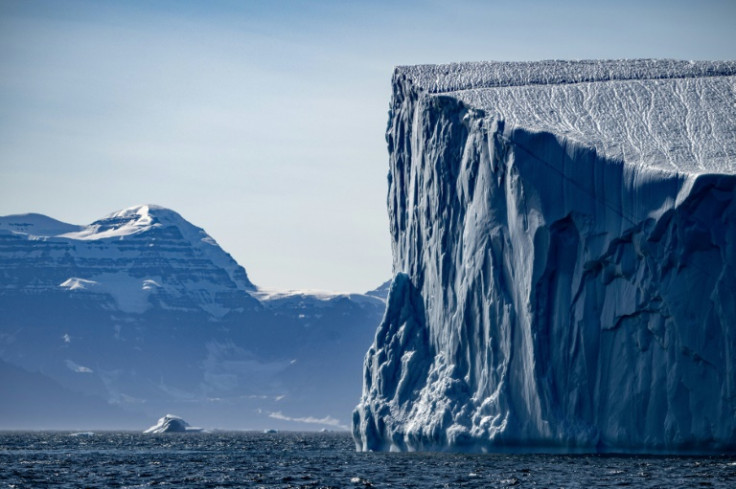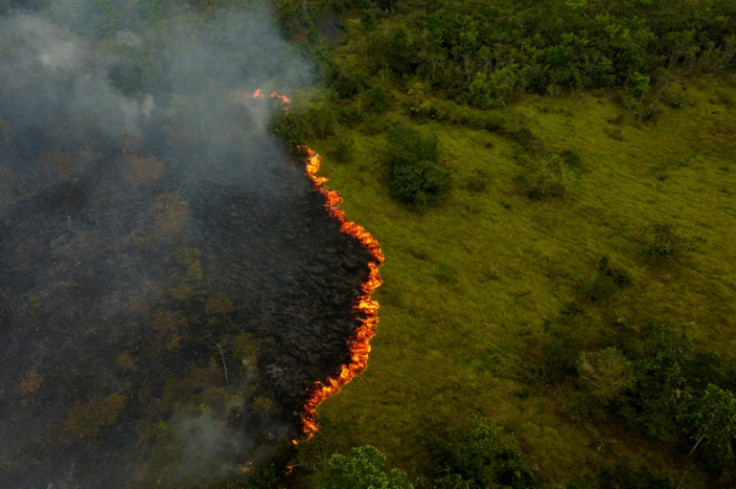
Humanity faces an "unprecedented" risk from tipping points that could unleash a domino effect of irreversible catastrophes across the planet, researchers warned Wednesday.
The most comprehensive assessment ever conducted of Earth's invisible tripwires was released as leaders meet for UN climate talks in Dubai with 2023 set to smash all heat records.
While many of the 26 tipping points laid out in the report -- such as melting ice sheets -- are linked to global warming, other human activities like razing swathes of the Amazon rainforest could also push Earth's ecosystems to the brink.
Five of these are showing signs of tipping -- from melting ice sheets threatening catastrophic sea level rise, to mass die-off of tropical coral reefs -- the report warned.
Some may have already begun to irrecoverably transform.
Once the world crosses the threshold for just one tipping point, dealing with the immediate humanitarian disaster could distract attention away from stopping the others, creating a "vicious cycle" of mass hunger, displacement and conflict, the report warned.
Tim Lenton, an Earth system scientist at the University of Exeter and lead author of the report, told AFP that these tipping points pose a "threat of a magnitude that is unprecedented for humanity".
But it was not all bad news.
The report also highlighted a range of positive tipping points -- such as electric vehicles, renewable energy and changing to plant-based diets -- that have the potential to swiftly build momentum and tip things back the other way.
"Imagine leaning back on a chair to that balance point where a small nudge can make a big difference," Lenton said.
"You could end up sprawled on your back on the floor -- or if you're lucky, back upright."
A key concern is if the melting West Antarctic and Greenland ice sheets collapse.
That could raise sea levels two metres by 2100, exposing nearly half a billion people to frequent coastal flooding, the report said.
The Greenland ice sheet has been shrinking at such a rate that it might already be too late.
"Is it past the tipping point or could it stop shrinking? No one's quite sure," Lenton said.
The other three tipping points most at risk are dying tropical coral reefs, melting permafrost and an ocean current called the North Atlantic subpolar gyre circulation.
Another ocean tipping point is the Atlantic Meridional Overturning Circulation (AMOC), a vast system that regulates the global transfer of heat from the tropics into the northern hemisphere.
The new report said it was plausible -- though unlikely -- that the AMOC would collapse this century.
This destabilising change could lead to vast regions getting far less rain, potentially halving the area worldwide where wheat and corn can be grown, it said.
"If that goes, suddenly there will be a global food security crisis and comparable water crisis as major monsoon systems in the tropics basically fail in India and West Africa. That will be a humanitarian catastrophe," Lenton said.
Recent massive fires in the Amazon rainforest and Canada's boreal forests suggest they are also more immediately at risk of tipping than previously thought, he added.
Lenton compared the job of the more than 200 researchers who created the over-400 page Global Tipping Points Report to risk assessors analysing a new aeroplane.
AMOC collapsing was like spotting something that could cause that plane to "fall out of the sky", he said.
But there's no way to redesign the Earth to make it safer.
Co-author Manjana Milkoreit from the University of Oslo said that "our global governance system is inadequate to deal with the coming threats and implement the solutions urgently required."
The authors called for tipping points to be included in the global stocktake being debated at the COP28 talks, as well as in national targets to combat climate change.
They also urged more effort to push tipping points in the right direction, such as changing policies on energy, transport, food and green ammonia used for fertiliser.
Sarah Das, a scientist at the US Woods Hole Oceanographic Institution, who was not involved in the report, said the science was now "crystal clear".
"The risks for humanity in crossing tipping points into these unexplored states is dire, and the impact to human lives potentially horrific," she said.










